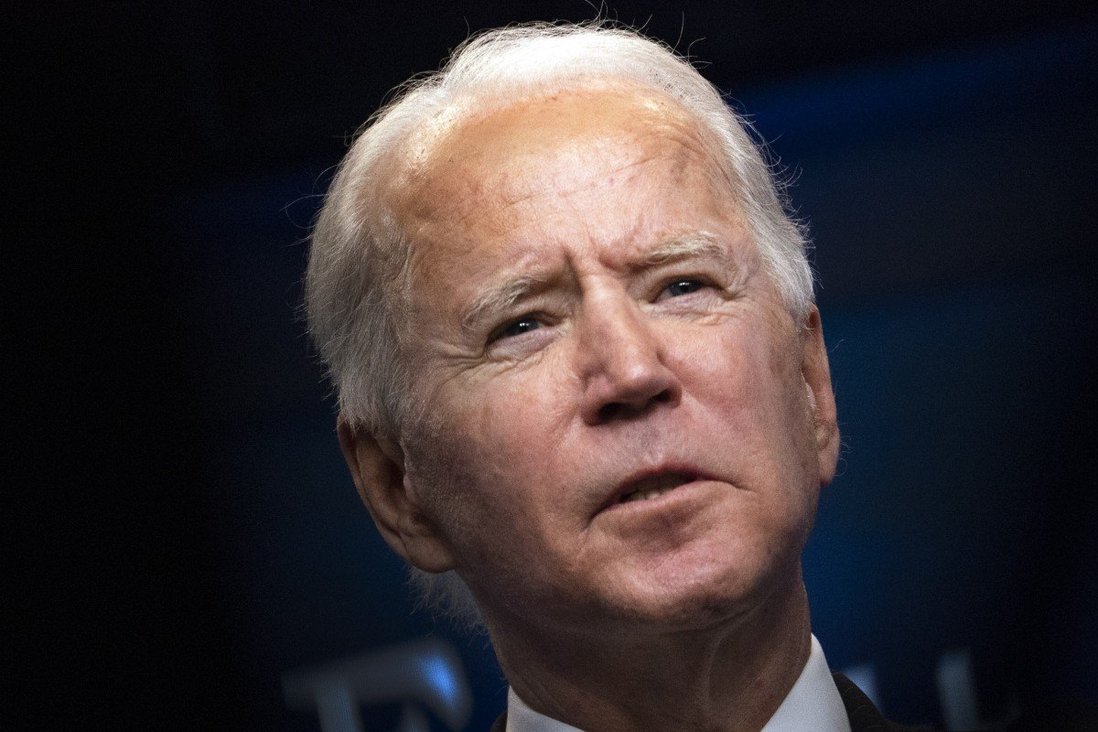www.aljazeerah.info
Opinion Editorials, January 2021
Archives
Mission & Name
Conflict Terminology
Editorials
Gaza Holocaust
Gulf War
Isdood
Islam
News
News Photos
Opinion Editorials
US Foreign Policy (Dr. El-Najjar's Articles)
www.aljazeerah.info
Early Signs from Biden White House of More Balanced China Policy Ahead By Shi Jiangtao SCMP, January 26, 2021 |
 |
 |
|
| US President Joe Biden |
New administration appears intent on making the most of Donald Trump’s China legacy, while toning down its more aggressive aspect Will it be enough to restore Washington’s tarnished reputation and rebuild trust with allies and partners?
Early indications from President Joe Biden’s administration point to the return of a more traditional approach to US-China relations. Photo: Bloomberg
Two issues are probably of greatest concern to Beijing when it comes to President Joe Biden – his administration’s stance on Taiwan, and how it chooses to interpret his predecessor’s Indo-Pacific strategy.
It is still too early to tell exactly what Washington’s changing of the guard means for US-China relations , but the Biden team gave some initial answers to both questions just a week into office – moving quickly to undo much of Donald Trump’s policies, while intent on making the most of his China legacy, albeit with a more balanced approach.
When China stepped up its military presence near the Taiwan Strait over the weekend, the US State Department reaffirmed Washington’s support for the self-ruled island, expressing concerns about China’s “pattern of ongoing attempts to intimidate its neighbours, including Taiwan”. ADVERTISING
Also highlighted was Taiwan’s role in Washington’s Indo-Pacific strategy, a geopolitical concept devised by the Trump administration to curb China’s rise.
It was the clearest indication that Biden’s White House intends to continue using the term Indo-Pacific to define its Asia policy, but it also signalled a move away from Trump’s singular focus on maintaining American primacy – at the heart of US-China rivalry – by emphasising a shared approach to prosperity and security ahead of differences in values and ideology.
The change in policy priorities shows Biden’s understanding of the region’s economic interdependence with China, as he tries to avoid Trump’s mistake of forcing countries to choose between the two superpowers.
From Taiwan’s perspective, it was a generally positive statement, describing US commitment to the island as “rock-solid” and renewing Washington’s pledge to “continue to assist Taiwan in maintaining a sufficient self-defence capability”.
Its restrained and diplomatic tone was probably acceptable to China too – compared with the fiery attacks from the Trump administration – leaving plenty of room for interpretation on the pivotal issue of Taiwan.
There was mention of the Three Communiques – a set of Taiwan-related exchanges between Beijing and Washington from the normalisation era which have formed the basis of the one-China policy, alongside the Taiwan Relations Act and other Taiwan-friendly guidelines, for decades.
The statement also talked about “the wishes and best interests of the people on Taiwan”, rather than “of Taiwan”, in line with Washington’s long-standing strategic ambiguity towards the island.
In another example of the Biden administration’s approach to the issue, new US defence secretary Lloyd Austin dodged a question, during his confirmation hearing a week ago, about whether Washington should defend Taiwan if China launched an attack.
“Our efforts will be to ensure we do everything to make sure that China does not make that decision,” he said.
In an article in this month’s Foreign Affairs magazine, senior National Security Council officials Kurt Campbell and Rush Doshi said Washington needed to find the right balance between deterring China’s adventurism and winning back regional support for an issues-based coalition to counter China.
The success of the new approach – similar to the China policies of previous Democratic and Republican administrations – remains to be seen. Much will depend on how well the White House is able to rebuild trust among its allies and partners and reclaim credibility as a global leader.
***
Shi Jiangtao is a former diplomat, Shi Jiangtao has worked as a China reporter at the Post for more than a decade. He's interested in political, social and environmental development in China.
***
Share the link of this article with your facebook friends
|
|
|
|
||
|
||||||


